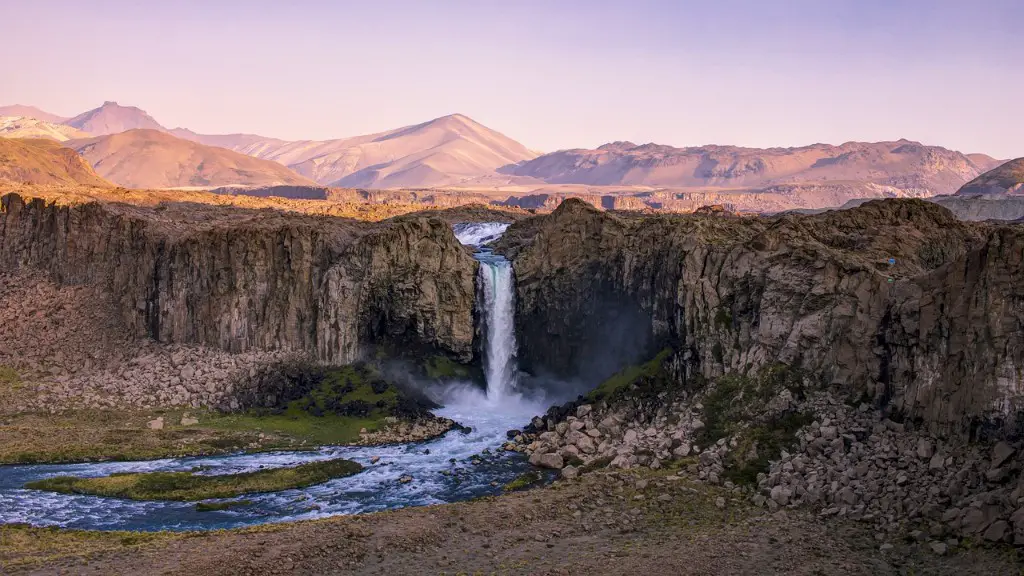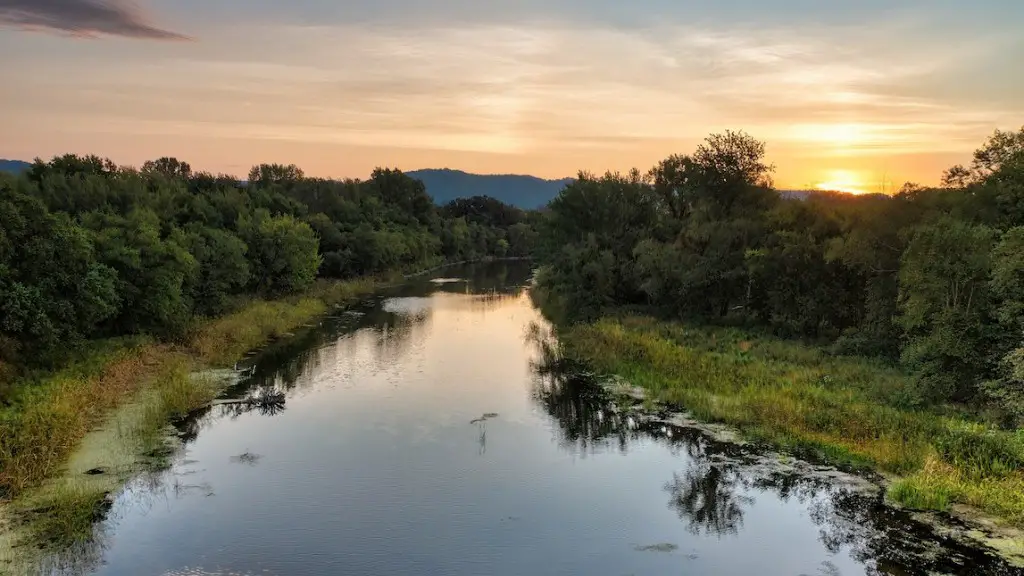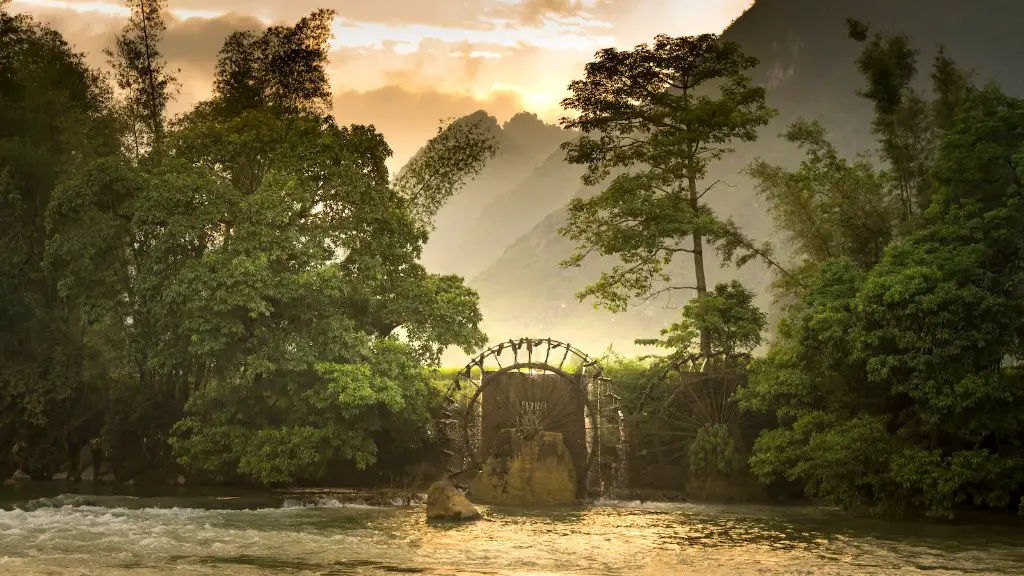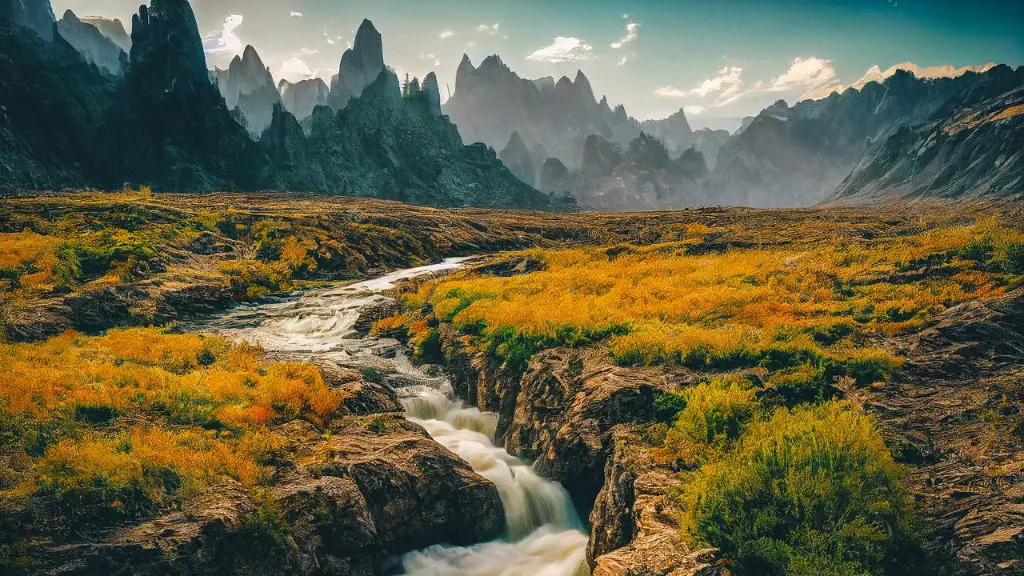The Depiction of The Nile in Ancient Egypt
In ancient Egypt, the Nile played a vital role in the proliferation and sustenance of the civilization. One of the most picturesque scenes painted by the civilization was the Nile across multiple forms of art and literature. The abundant wildlife and plant life served to create a visual delight along the Nile’s entirety. From beautiful monarchs consuming the delicacies of the Nile, to the fragrance of water-lilies on the canoes as they glided over the river, the Nile was a monolith at the center of the ancient Egyptian people’s lives.
The Nile was not only a physical eye-pleaser to the people of ancient Egypt. The river was ‘the’, almost literal, lifeblood for the Egyptian Empire. The flooding patterns of the Nile made the land around it extremely fertile, feeding the giant populace and creating a reliable harvest every year. This, along with the fishing of the river and the accessibility to resources, enabled the Egyptians to build stable towns, cities, and even a powerful empire.
From religious records as well, it is highly evident that the Nile was more than just a lifeline; it was a sacred entity. The lyrics of the hymns in documentation, such as the Hymn to the Nile, must be analyzed to truly understand the Nile’s importance. This hymn serves as a testimony to the Nile’s role in Egyptian life— the Supreme Being of Ancient Egypt, the Pharaoh, would pray and make offerings to the Nile. This veneration was partly due to the Nile’s ability to feed the population, which is why it was highly important for ancient people to have gods and goddesses that blessed the Nile, a phenomenon known as the veneration of the fertile graveyard.
The Nile also played a vital role in the transportation of passengers. Ancient Egyptians relied heavily on boats to traverse their kingdom, with the Nile providing the perfect pathway from one place to another. The boats glided smoothly along the river, carrying supplies and passengers alike for long distances. Therefore, it is safe to say that the Nile provided a significant boost to ancient Egyptians in terms of the convenience of transportation.
We can also consider the positive impacts of the Nile on the fields of health and commerce. Not only did the river enhance fertility, but it improved the circulation of medicines as well, due to its facilitate transportation of herbs. Furthermore, the solid transportation of goods also allowed Ancient Egyptians to practice commerce with other related civilizations.
It is quite clear that the Nile was an integral part of Ancient Egyptian civilization. Not only did it bring life to the region by providing fertile land with the help of its rich alluvial deposits, but the Nile also revolutionized commerce and transportation.
The Impact of the Nile on the Economy of Ancient Egypt
The impact of the Nile River on the economy of Ancient Egypt is staggering. In many ways, the control of the Nile River—from its flooding and receding, to its vast expanse—helped to make Egyptian civilization what it is today. One of the most obvious aspects of the Nile’s influence on Ancient Egyptian life is in the realm of agricultural production.
The flooding of the river exposed a wide expanse of land to a rejuvenated cycle of nutrients and water. This, in turn, created a vast area of arable land that could be used for agricultural production. As a result, the Ancient Egyptians could cultivate huge areas of land and produce a surplus of foods and goods.
The presence of the Nile allowed the Egyptians to also construct lakes, reservoirs, and canals in order to govern irrigation and access water more easily. This enabled the Ancient Egyptians to create a robust and advanced form of irrigation and navigation. Therefore, the Nile allowed Ancient Egyptians to be some of the first to construct an agricultural infrastructure and acquire access to freshwater.
Furthermore, the presence of the Nile also allowed Ancient Egyptians to engage in a wide range of trading activities. As the river formed a path between different geographic regions, Ancient Egyptians used the river to travel throughout their kingdom and further afield for trading purposes.
Not only did Ancient Egyptians travel to other regions for trade, the ancient rulers also invested in the construction of infrastructure to ensure safe and efficient trading activities. This included the construction of roads and bridges, which helped to open up access between parts of the kingdom so that goods could be transported more easily. This ultimately helped to increase trade, thereby boosting the economy.
The other main aspect of the Nile’s influence on Ancient Egypt’s economy was through taxation. As the Ancient Egyptians were able to construct a vast and efficient transportation system, they were able to collect taxes more efficiently. Moreover, the taxation system allowed the Ancient Egyptians to control the export and import of goods and resources, thus generating a huge influx of revenue for the kingdom. This money could then be used to fund public services and infrastructure.
In a nutshell, the Nile was a stream of constant and reliable resources for the Ancient Egyptians. The river gave them the necessary resources, services, and infrastructures to develop an advanced and stable economy.
The Role of the Nile in Ancient Egyptian Religion and Culture
The Nile has played an important role in the religious and cultural practices of Ancient Egyptians. As a matter of fact, the Ancient Egyptians were highly religious. They believed that the gods were responsible for the flooding of the Nile. The flooding of the Nile was, in turn, seen as a sign of divine intervention, because it allowed the Egyptians to irrigate the land and gain access to much-needed resources, such as food and water.
Moreover, the Nile was seen as a sacred river, which the Ancient Egyptians believed the gods favored. As a result, the Ancient Egyptians worshipped the gods of the Nile and showed their gratitude for the blessings the river bestowed upon them. Notably, the Egyptians would build shrines to honor their gods and make offerings to ensure their favor. This was seen as a way of thanking the gods for their vital role in providing the Nile.
In addition to religious practices, the Nile also played a large part in Ancient Egyptian culture. The river served as a meeting place for different communities to interact and communicate. In fact, the Nile was a common source of entertainment for the Ancient Egyptians; it provided the perfect setting for music, sports, and other forms of leisure. What’s more, the river facilitated the exchange of goods and services and encouraged trade.
The Nile was also integral to the construction of religious and cultural structures. Temples, pyramids, and other monuments were built near the river due to the convenience of its availability. As such, the Nile was instrumental in the development of some of the most magnificent structures that still stand today.
From its economic importance to its cultural and religious significance, the importance of the Nile in Ancient Egyptian life cannot be understated. It provided the people of Ancient Egypt with an abundant source of resources, food, and entertainment. Today, it continues to be a major player in Egyptian life and serves as a reminder of the great history and influence of Ancient Egypt.
The Legacy of the Nile in Modern Egypt
The legacy of the Nile River in modern Egypt is quite evident. To this day, the Nile serves as an important source of water and food, and its dynamics continue to shape life in the country.
In modern-day Egypt, the Nile is still used for irrigation and to provide the majority of the country’s water supply. The Nile remains an integral part of the Egyptian economy. The abundance of water from the Nile helps support the agricultural industry, which is a key contributor to the country’s gross domestic product (GDP).
The River also continues to be a popular destination for tourists. The natural beauty and the rich history surrounding the river make it a great spot for sightseeing. Ancient temples and monuments are aplenty along the banks of the Nile and provide visitors with a unique experience.
The Nile is also used for transportation and trade between regions. The river provides a smooth pathway for transportation services and it is a dependable form of transport for many people in Egypt.
From its cultural and religious significance to its economic and commercial importance, the Nile has been a driving force in Egyptian life for thousands of years. Although the river is no longer venerated in the same way as it once was in Ancient Egypt, it remains an integral part of the country’s identity and heritage.
The Impact of Human Activity on The Nile
Throughout its lifetime, the Nile has been highly prone to man-made alterations that have a serious impact on its survival. In modern times, the Nile is under constant threat from activities such as over-fishing, water pollution, and deforestation.
Over-fishing is one of the major causes of concern for the Nile. The over-harvesting of fish from the river has led to the depletion of fish stocks and, consequently, the destruction of their habitats. Such activities can have an adverse effect on the natural balance of the river ecosystem and could potentially disrupt the food chain.
In addition, pollutants such as industrial and agricultural waste are also a major issue affecting the health of the Nile. These pollutants are discharged directly into the river, affecting the water quality and potentially leading to the degradation of the river system.
Deforestation, too, is an important factor to consider in light of the Nile’s survival. The destruction of natural vegetation and land to make way for development projects poses a real threat to the river. Such activities can have an impact on the overall health of the river, in terms of both water quality and ecosystem balance.
The Nile is a fragile, yet vital, ecosystem that must be protected in order to ensure its sustainability. It is our duty to pay attention to the human activities that can have a detrimental effect on the Nile, such as over-fishing, water pollution, and deforestation. Only then can we hope to preserve the legacy of this amazing river.





